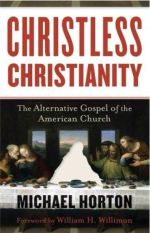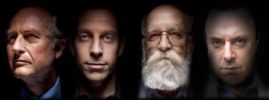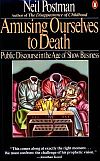Before thy cross I kneel and see the heinousness of my sin, my iniquity that caused thee to be ‘made a curse’, the evil that excites the severity of divine wrath. Show me the enormity of my guilt by the crown of thorns, the pierced hands and feet, the bruised body, the dying cries. Thy blood is the blood of incarnate God, its worth infinite, its value beyond all thought. Infinite must be the evil and guilt that demands such a price. Sin is my malady, my monster, my foe, my viper, born in my birth, alive in my life, strong in my character, dominating my faculties, following me as a shadow, intermingling with my ever thought, my chain that holds me captive in the empire of my soul. Sinner that I am, why should the sun give me light, the air supply breath, the earth bear my tread, its fruits nourish me, its creatures subserve my ends? Yet thy compassions yearn over me, thy heart hastens to my rescue, thy love endured my curse, thy mercy bore my deserved stripes. Let me walk humbly in the lowest depths of humiliation, bathed in thy blood, tender of conscience, triumphing gloriously as an heir of salvation.
To purchase this excellent devotional prayer book, go here: http://www.monergismbooks.com/The-Valley-of-Vision-Leather-p-16293.html
 Here we are in the North American church—conservative or liberal, evangelical or mainline, Protestant or Catholic, emergent or otherwise—cranking along just fine, thank you. So we’re busy downsizing, becoming culturally relevant, reaching out, drawing in, making disciples, managing the machinery, utilizing biblical principles, celebrating recovery, user-friendly, techno savvy, finding the purposeful life, practicing peace with justice, utilizing spiritual disciplines, growing in self-esteem, reinventing ourselves as effective ecclesiastical entrepreneurs, and, in general, feeling ever so much better about our achievements.
Here we are in the North American church—conservative or liberal, evangelical or mainline, Protestant or Catholic, emergent or otherwise—cranking along just fine, thank you. So we’re busy downsizing, becoming culturally relevant, reaching out, drawing in, making disciples, managing the machinery, utilizing biblical principles, celebrating recovery, user-friendly, techno savvy, finding the purposeful life, practicing peace with justice, utilizing spiritual disciplines, growing in self-esteem, reinventing ourselves as effective ecclesiastical entrepreneurs, and, in general, feeling ever so much better about our achievements.
Notice anything missing in this pretty picture? Jesus Christ!
 “Indeed, all who desire to live a godly life in Christ Jesus will be persecuted.” – 2 Timothy 3:12
“Indeed, all who desire to live a godly life in Christ Jesus will be persecuted.” – 2 Timothy 3:12
I recently watched four video lectures I have been meaning to get to for a while from Dallas Theological Seminary in which Dr. Albert Mohler spoke on the topic of the rise of the New Atheism. One of the main things I gleaned from these lectures is that since the late Medieval times, there have been three main thrusts of thought in the realm of atheism. 1) It was initially impossible not to believe in theism. 2) After the Enlightenment, it was then possible not to believe. Atheism began to grow in various ways. 3) And now in our current situation, it is, at least with the elites for the moment, impossible to believe, which is one of the reasons some are calling this new movement Enlightenment 2.0. In the West, there has been a gradual decay of belief in God that now brings us to a rather dangerous point in history. If during the period where it was possible not to believe, such awful events occurred like the Holocaust, the starvation of millions of Russians at the hands of Stalin, all resulting from or rooted in atheistic presuppositions during World War I and II, what is possible if a culture adopts the idea that it is impossible to believe in theism and that those, particularly Christians who hold the historic faith, are dangerous to humanity?
 “What Orwell feared were those who would ban books. What Huxley feared was that there would be no reason to ban a book, for there would be no one who wanted to read one. Orwell feared those who would deprive us of information. Huxley feared those who would give us so much that we would be reduced to passivity and egoism. Orwell feared that the truth would be concealed from us. Huxley feared the truth would be drowned in a sea of irrelevance. Orwell feared we would become a captive culture. Huxley feared we would become a trivial culture, preoccupied with some equivalent of the feelies, the orgy porgy, and the centrifugal bumblepuppy. As Huxley remarked in Brave New World Revisited, the civil libertarians and rationalists who are ever on the alert to oppose tyranny ‘failed to take into account man’s almost infinite appetite for distractions.’ In 1984, Orwell added, people are controlled by inflicting pain. In Brave New World, they are controlled by inflicting pleasure. In short, Orwell feared that what we hate will ruin us. Huxley feared that what we love will ruin us.”
“What Orwell feared were those who would ban books. What Huxley feared was that there would be no reason to ban a book, for there would be no one who wanted to read one. Orwell feared those who would deprive us of information. Huxley feared those who would give us so much that we would be reduced to passivity and egoism. Orwell feared that the truth would be concealed from us. Huxley feared the truth would be drowned in a sea of irrelevance. Orwell feared we would become a captive culture. Huxley feared we would become a trivial culture, preoccupied with some equivalent of the feelies, the orgy porgy, and the centrifugal bumblepuppy. As Huxley remarked in Brave New World Revisited, the civil libertarians and rationalists who are ever on the alert to oppose tyranny ‘failed to take into account man’s almost infinite appetite for distractions.’ In 1984, Orwell added, people are controlled by inflicting pain. In Brave New World, they are controlled by inflicting pleasure. In short, Orwell feared that what we hate will ruin us. Huxley feared that what we love will ruin us.”
Excerpt from the book Amusing Ourselves to Death by Neil Postman.
 “Therefore remember that at one time you Gentiles … were … separated from Christ, alienated from the commonwealth of Israel and strangers to the covenants of promise, having no hope and without God in the world.” – Ephesians 2:11-12
“Therefore remember that at one time you Gentiles … were … separated from Christ, alienated from the commonwealth of Israel and strangers to the covenants of promise, having no hope and without God in the world.” – Ephesians 2:11-12
When reading this statement by Paul, in his mind, being separated from Christ means being separated from the commonwealth of Israel and the covenants of promise. They are all one in the same. The promise made to Noah, Abraham, Isaac, Jacob, Moses, and the prophets, is the same promise we Gentiles inherit through faith alone in Christ alone. We are grafted into the Vine, which is Christ. We become a part of Israel, that is, God’s saved people for all time. There is no segmentation of Israel versus Gentiles. Christ has brought that wall down and we are the same: Israel, the people who have believed God and are reckoned as righteous on the basis of the righteousness of Another, Christ.

